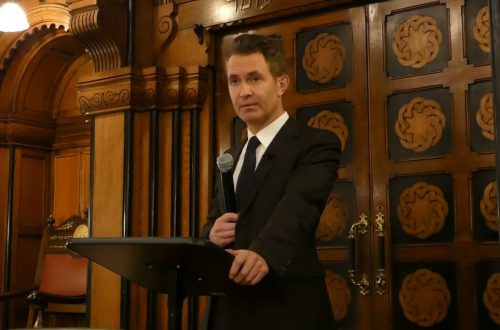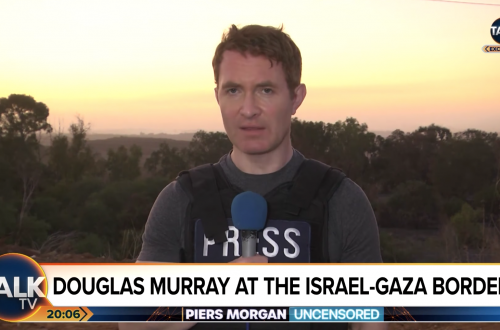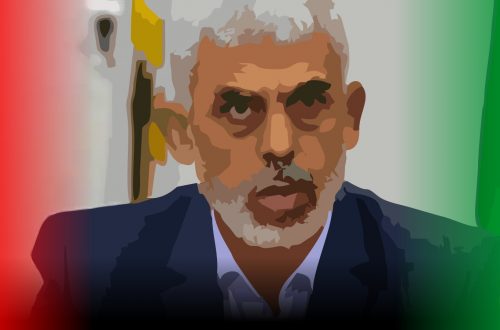Here is a must read piece by Ethan Bronner in the New York Times:
Seven months after Israel started a fierce three-week military campaign here to stop rockets from being fired on its southern communities, Hamas has suspended its use of rockets and shifted focus to winning support at home and abroad through cultural initiatives and public relations.
…
Mr. Taha and others say that the military has replaced field commanders and restructured itself as it learns lessons from the war. The decision to suspend the use of the short-range Qassam rockets that for years have flown into Israel, often dozens a day, has been partly the result of popular pressure. Increasingly, people here are questioning the value of the rockets, not because they hit civilians but because they are seen as relatively ineffective.
“What did the rockets do for us? Nothing,” Mona Abdelaziz, a 36-year-old lawyer, said in a typical street interview here.
How long Hamas will hold its fire and whether it will obtain longer-range missiles — which it says it is seeking — remain unclear. But the shift in policy is evident. In June, a total of two rockets were fired from Gaza, according to the Israeli military, one of the lowest monthly tallies since the firing began in 2002.
Bronner continues:
In that tactical sense, the war was a victory for Israel and a loss for Hamas. But in the field of public opinion, Hamas took the upper hand. Its leaders have noted the international condemnation of Israel over allegations of disproportionate force, a perception they hope to continue to use to their advantage. Suspending the rocket fire could also serve that goal.
Hamas’ goal is, of course, the obliteration of Israel and the creation of a theocratic Islamic state, as detailed in the Hamas Covenant, and indeed in the statements of its leaders. When Hamas talks of a truce, the word it uses is ‘hudna’: a term which for Hamas ties in theologically with the Hudna of Hudaybiyyah. In that famous hudna, Mohammed entered into a peace treaty with the Quraishi tribe who lived in Mecca. It ended badly for the Quraishis. Three years later, following an attack by an ally of the Quraishis on Mohammed’s followers, the treaty broke down and Mohammed conquered Mecca. No doubt, this is the lesson that Hamas seeks to draw from scripture. But is it right to do so?
Hudnas are dangerous things: but they are dangerous for both parties. As the example of Islamic Republic of Iran shows, it only takes a generation of peace for the coming generation to become so disillusioned with the aging fools who led the revolution, that they’re prepared to risk it all for a better, or at least another way.
Hamas must, at some stage, be brought into negotiations. Israel and Hamas do, of course, ‘talk’ already, in a limited day to day sense. However, the complete suspension of atacks on its neighbour must be the trigger to begin tying Hamas more closely into the formal process of negotiation. That will require the assistance of the United States and the European Union.
If Hamas has concluded that it cannot carry its population through another pointless war, and has therefore shifted from terrorism to ‘cultural resistance’ and diplomacy, that is as close to an admission of defeat that you are likely to see from a political movement whose dynamism is bravado. Hamas also knows that, without a sense of crisis and desperation, it risks losing power to an different politics that is more interested in material than spiritual ‘improvement’. It must be hoping, therefore, that a diet of the sort of shlocky-sinister propaganda that it puts out on Al Aqsa TV will fill the gap, and keep the spirit of struggle going in the absence of real conflict.
But Al Aqsa TV is not the only voice in Gaza. As Ethan Bronner notes, Hamas is not culturally unopposed:
[The new focus on culture] may … bring unforeseen risks to the Islamist leaders of Hamas. The play currently seen nightly at Gaza City’s Shawa cultural center offers an example of how.
Called “The Women of Gaza and the Patience of Job,” it consists of a series of contemporary and historical scenes about suffering. And while it might be helping to create a sense of solidarity among the people of Gaza, it pushes some local limits.
In one satirical scene, for example, a Hamas fighter is standing over his rocket launcher about to fire at Israel when a woman asks about her brother, a fellow fighter.
Oh yes, he replies excitedly, her brother is a hero. He made the Israelis quake in their boots. “He hit Tel Aviv!”
From the audience emerges a dismissive laugh, for it knows how meaningless such boasting proved over the years.
After the show one recent evening, its writer, director and star, Said al-Bettar, said he wrote the scene that way to make the point that, “We were the victims of a big lie.” He added, “The people paid a heavy price and society is looking for someone to express its views clearly.”
Mr. Bettar, who is not a follower of Hamas and is popular here, said the government had not interfered with his work or criticized it. Besides mocking the rockets, he has done something else rather subversive — his entire cast (apart from himself) is female, and women sing on stage, something that is frowned upon by religious Muslims.
He said he wanted to challenge the conservatives of Gaza and added, “We need to engage with the world, not isolate ourselves.”
The prospect of a hudna is seen as a trick by many Israelis: a scheme to allow Hamas to regroup and rearm and to attack anew. That is not a misplaced fear. It is however a huge opportunity. It goes without saying that war has a huge cost for Israel. But both war and peace hurt Hamas.
Hamas is a hateful organisation. It owes its strength within Palestinian society largely to the ennui with Fatah and the hatred of Israel: a hatred which naturally increases during periods of conflict. In the West – apart from the hardcore nutters – there is far greater sympathy for the terrible suffering of Palestinian civilians while they are dying in Israeli strike at Hamas, than any enthusiasm for Hamas’ ideology or political goals. Hamas clearly craves international legitimacy: and that prize can only be bought by continued good behaviour.
Engagement with Hamas when it was in a position of strength would certainly have been an error. Not to seize the initiative when Hamas is weak would also be foolish. As Bew and Frampton have argued:
Ultimately, then, there is a crucial difference in talking to terrorists who are on the crest of a wave and believe they have momentum on their side and talking to those who have been made to realise – by hard power as well as a soft power – that their aims are unattainable through violence.
If Bronner is right, and if Hamas starts acting as if it is moving towards ‘cultural resistance’, then a strategy that recognises that development is required.
The bunch of no-hopers that presently run the Israeli Government are patently not qualified to play much of a role in the new world that ‘cultural engagement’ may open up. This is the government which banned a (pretty political) Palestinian literary festival on the grounds that, erm, it was political. What an irony it is that Hamas – which brutalises its population in many ways – still manages to permit an anti-Hamas play to be performed in Gaza!
Nevertheless, there are things which the Israeli Government must do. A proper settlement freeze – for the symbolic reasons that Norm identifies here – is essential, as are the gradual removal of those security measures that create immense hardship for Gazans. All this must be achieved as, step by step, the cessation of hostilities is formalised.
Meanwhile, it is Israeli civil society – trade unions, academia, musicians, artists and the many ordinary people who make up the country – that will need to take the lead in the process of reaching out to Palestinian society, and to the world. That won’t be easy. Supporters of peace and co-existence in two secure states know that they’re up against the PACBI position, which is policed by threats of violence, such as those that derailed the Palestinian-Israeli ‘One Voice‘ event. Therefore, expect the various BDS campaigns run by the extreme Left in Europe and the United States to be redoubling their efforts to scotch what it terms ‘normalisation’.
Newspapers, academic papers, and blog posts are littered with worked through hypotheticals based on single newspaper reports by journalists wearing standard issue rose-tinted lenses. This is a contribution to that tradition. Nevertheless, if Hamas stops attacking the citizens of Sderot, and diplomacy shifts towards the freeing of the captive Shalit, the rules of the game have changed, and that will need to be recognised and acted on.


